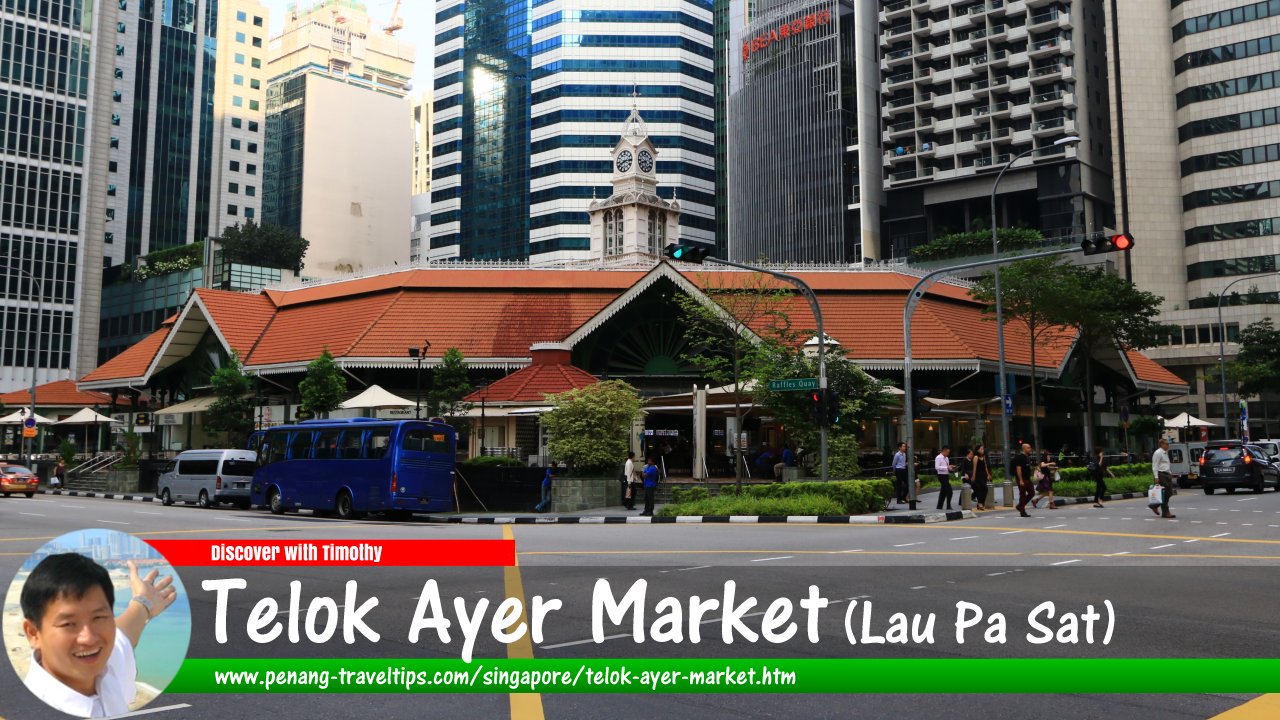 Telok Ayer Market (27 July 2017)
Telok Ayer Market (27 July 2017)
Telok Ayer Market (GPS: 1.28049, 103.85048), often called Lau Pa Sat Lau Pa Sat is a food centre in the Downtown Core of Singapore. Bordered by Raffles Quay, Robinson Road, Cross Street and Boon Tat Street, Lau Pa Sat is housed in the former Telok Ayer Market, the largest Victorian filigree cast-iron structure in Southeast Asia.
The first market in Singapore was located on the south bank of the Singapore River. It was moved to Teluk Ayer Bay when the government acquired the land for commercial use. This led to the opening of the first Telok Ayer Market in 1825. At that time, the bay at Telok Ayer still existed. That market was just a simple wooden structure measuring 30 feet by 80 feet, with an attap roof. It was built of piling over the bay, with jetties that extended into the sea, to allow boats to unload their goods. Due to the material used which were not sturdy enough to face the elements, that market building had to be repaired regularly. The old Telok Ayer Market building remained in use until 1836, when a new building was commissioned.
The second incarnation of Telok Ayer Market was designed by George Drumgoole Coleman. He came up with an octagonal design with ornamental columns at the entrance. Coleman's market building stood until 1879, when land reclamation called for its demolition. Telok Ayer Bay was reclaimed in a massive reclamation project which was carried out between 1878 and 1885. The reclamation required the levelling of Mount Wallich and Mount Erskine so that the soil from the two hills could be used to fill up the bay. With land reclamation, the bay disappeared. Telok Ayer Street, which originally ran along the beach, was all that remains to remind us of the bay that once was.
On the newly reclaimed land, municipal engineer James MacRitchie designed a new building for the market. He adopted Coleman's octagonal design, and added cast-iron supports to strengthen the structure. At the centre of the market, he added a fountain. That fountain stood in Telok Ayer Market until 1920, when it was moved to the Orchard Road market, which is now no longer in existence.
In 1973, the year the Telok Ayet Market was gazetted a National Monument, it was converted to a food centre. In 1986, it had to be closed down to make way for the construction of the Mass Rapid Transit (MRT) Line underneath. However, due to its historical and architectural significance, its cast-iron supports were put into storage.
When the MRT was completed in the late 1980s, the Telok Ayer Market was reconstructed. It stays faithful to James MacRitchie's and Coleman's octagonal design, and the cast-iron supports were reinstated. It was reopened in 1991, under the rebranded name of Lau Pa Sat, which means "Old Market" in Hokkien, the most commonly spoken Chinese dialect in Singapore. Lau Pa Sat was initially intended to be a festival market catering to tourists, but it reverted to being a food centre again in 1995.
Lau Pa Sat was gazetted a National Monument of Singapore on 6 July 1973.
Getting there
The Telok Ayer Market is 220 meters from the Raffles Place MRT Station (EW14/NS26) and 350 meters from the Telok Ayer MRT Station (DT18).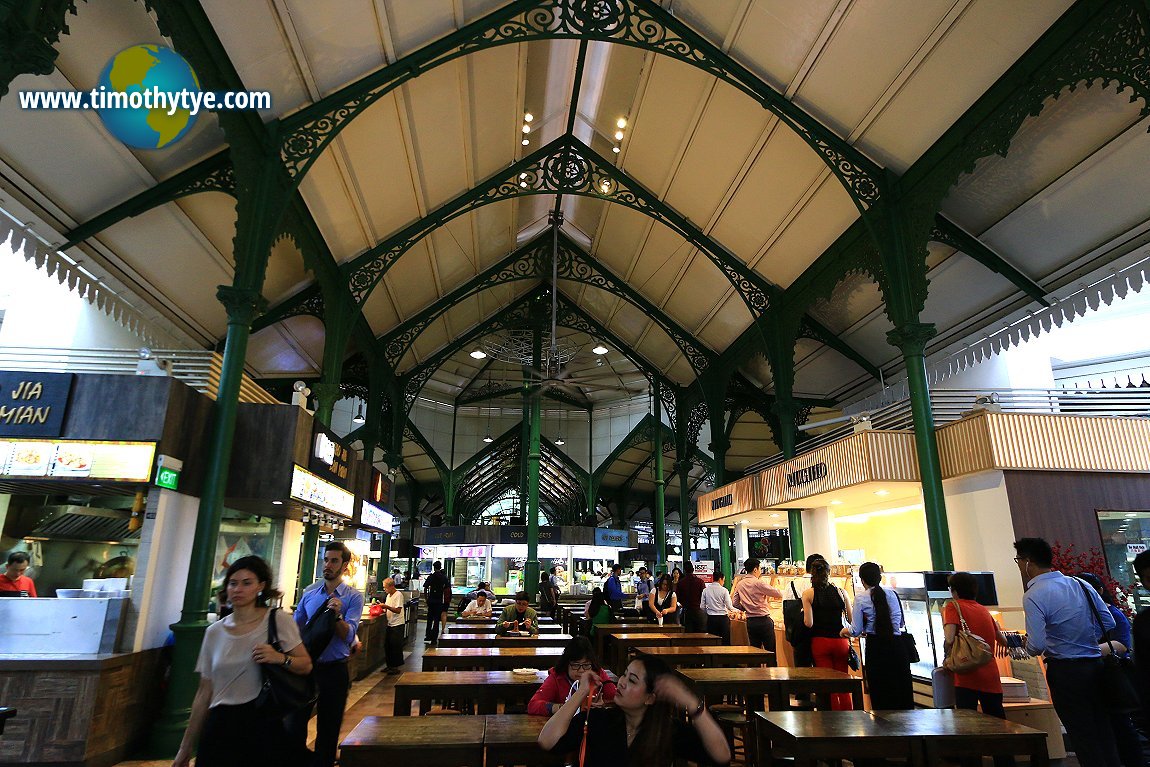 Interior of the Telok Ayer Market (27 July 2017)
Interior of the Telok Ayer Market (27 July 2017)
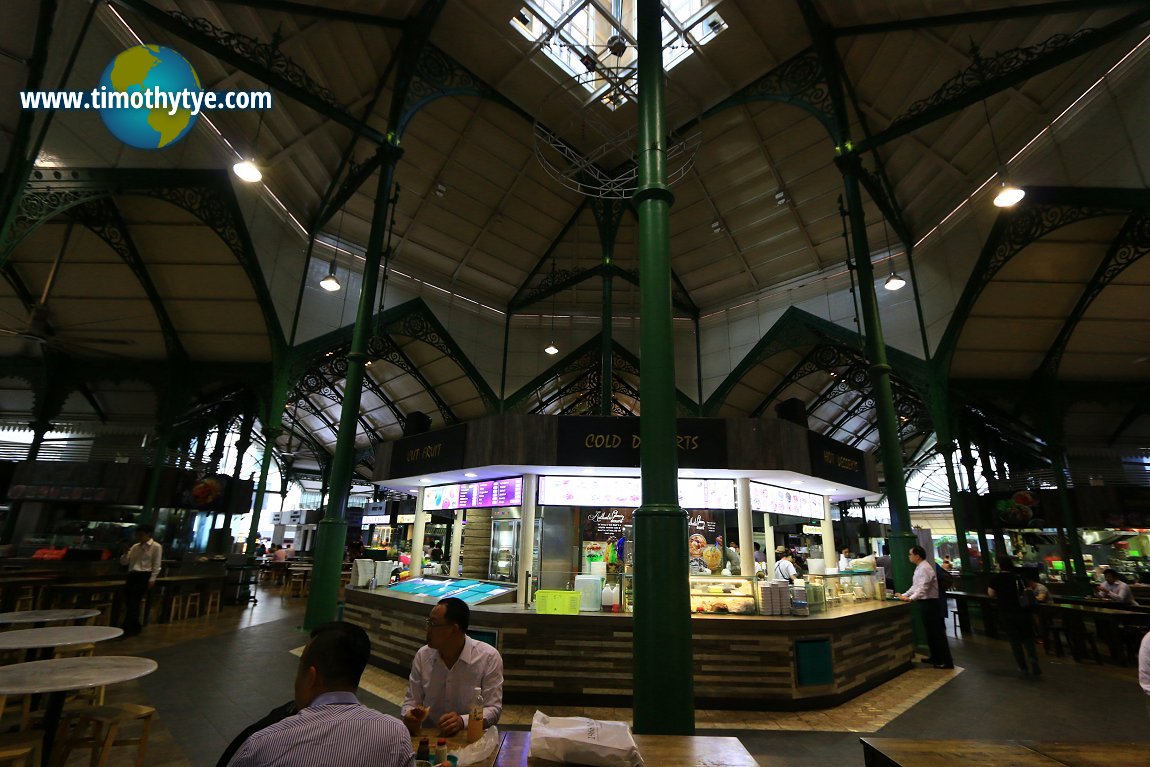 The drinks station occupies the centre part of Telok Ayer Market (27 July 2017)
The drinks station occupies the centre part of Telok Ayer Market (27 July 2017)
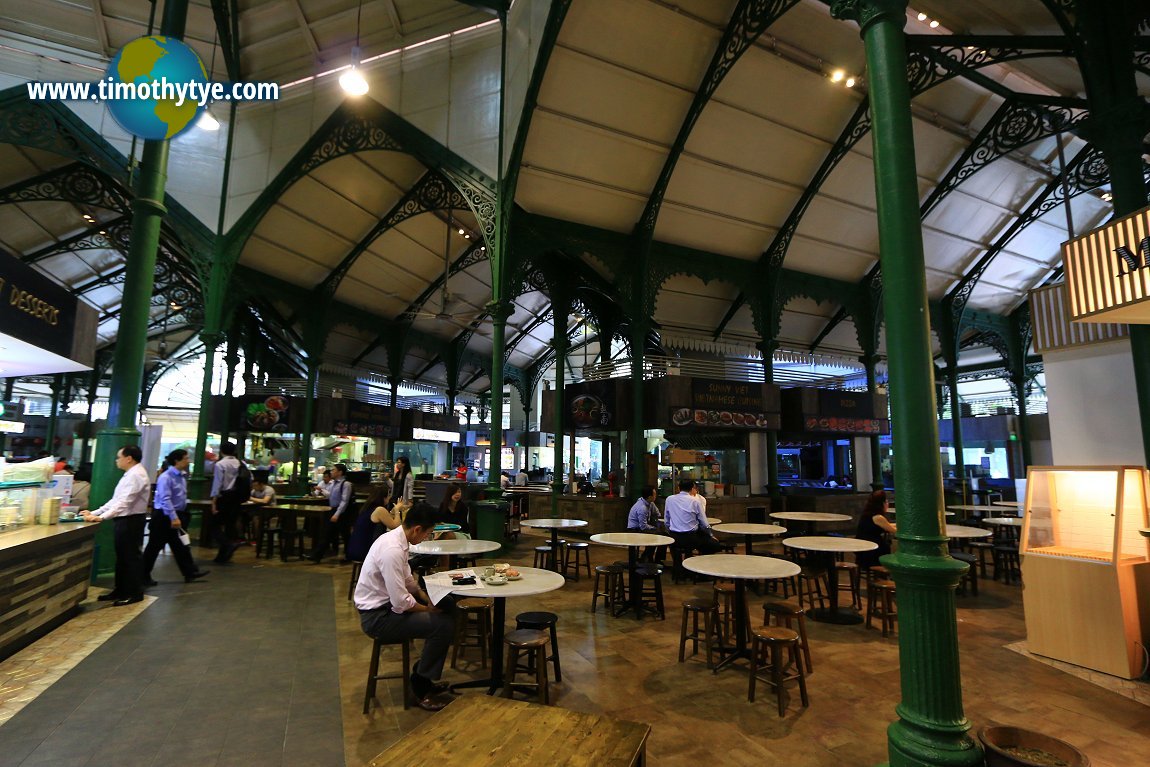 The Telok Ayer Market caters mostly to office workers. In the morning, they come here for their breakfast before heading to their office. (27 July 2017)
The Telok Ayer Market caters mostly to office workers. In the morning, they come here for their breakfast before heading to their office. (27 July 2017)
The Telok Ayer Market is  on the map of the Downtown Core Planning Area
on the map of the Downtown Core Planning Area
The Telok Ayer Market is  on the Map of Raffles Quay, Singapore
on the Map of Raffles Quay, Singapore
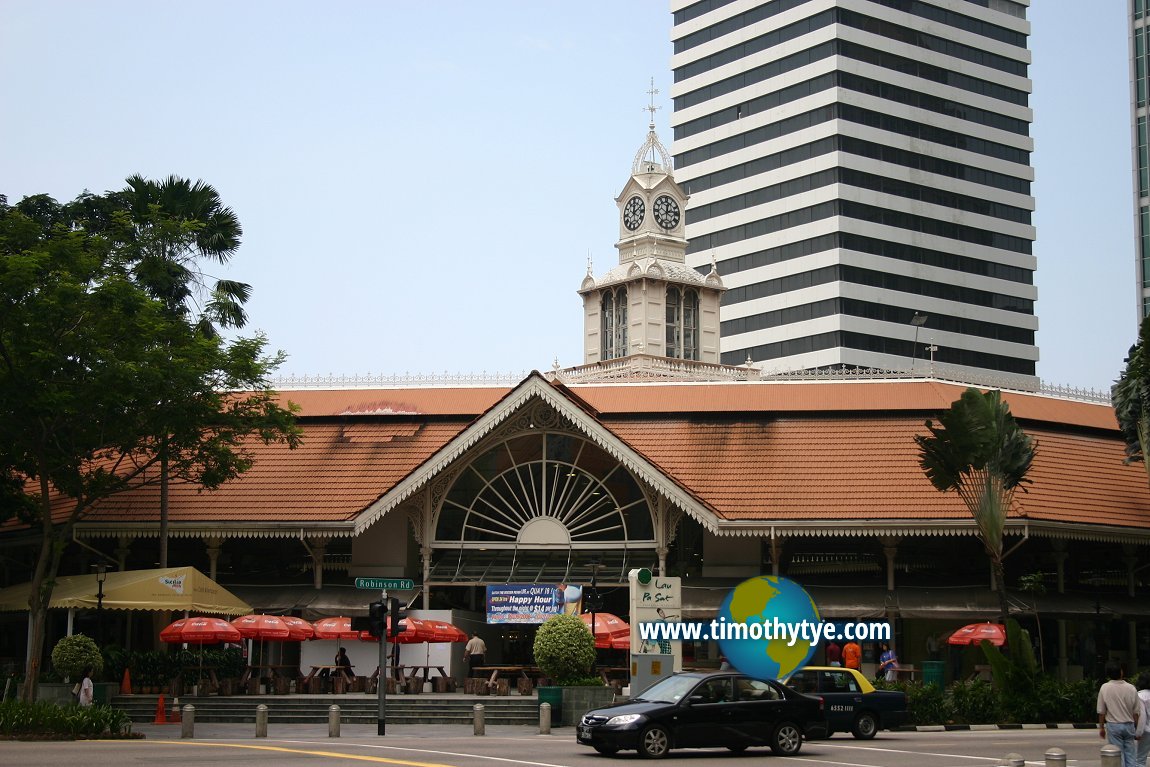 Lau Pa Sat, Singapore (8 July 2006)
Lau Pa Sat, Singapore (8 July 2006)
Visits to the Telok Ayer Market
27 July, 2017I visited the Telok Ayer Market in the morning of 27 July, 2017. It was my second day in Singapore, and I was curious to view life in the downtown area. I saw hordes of office workers emerging from the MRT station and make their way to their respective offices. Some went to the Telok Ayer Market for their breakfast. I decided to have my breakfast there too. Walking around, I looked for something filling, and finally decided to have chicken rice. I also ordered a plate of beansprout to go with it. The taste was so so only - the meal was more to ward off hunger than for enjoyment.
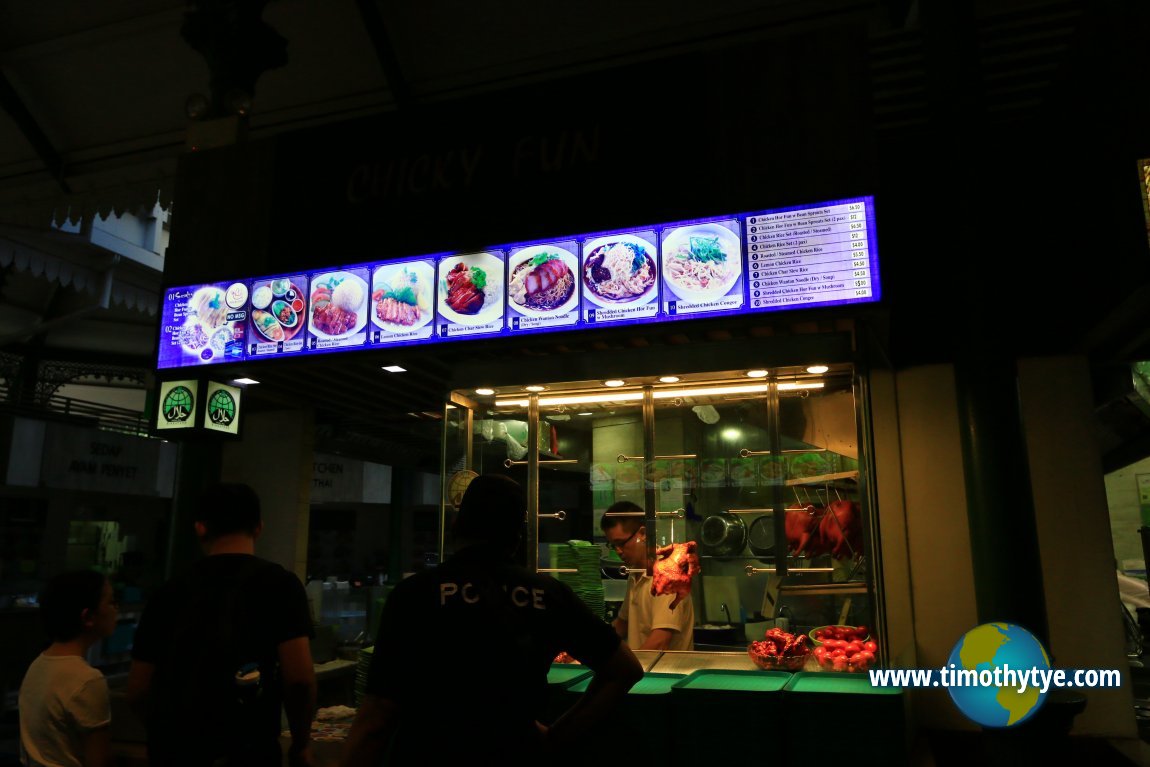 The chicken rice stall at the Telok Ayer Market where I had my breakfast. (27 July 2017)
The chicken rice stall at the Telok Ayer Market where I had my breakfast. (27 July 2017)
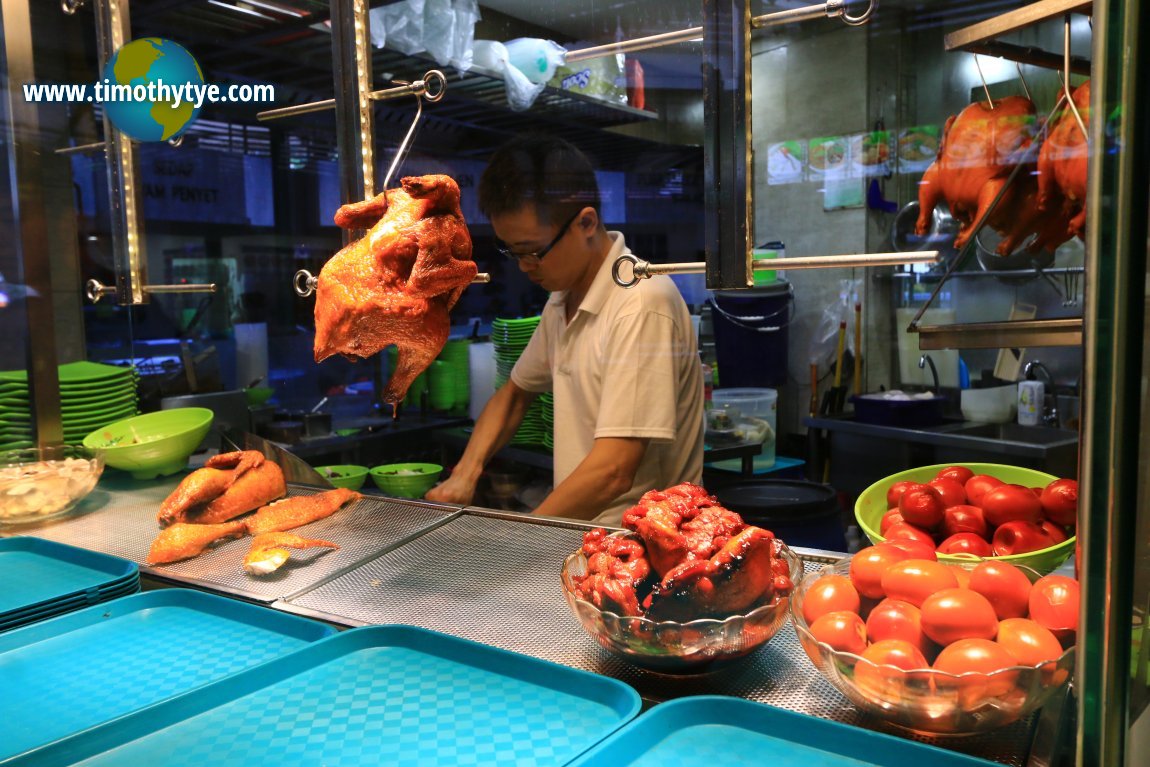 The hawker at his stall. (27 July 2017)
The hawker at his stall. (27 July 2017)
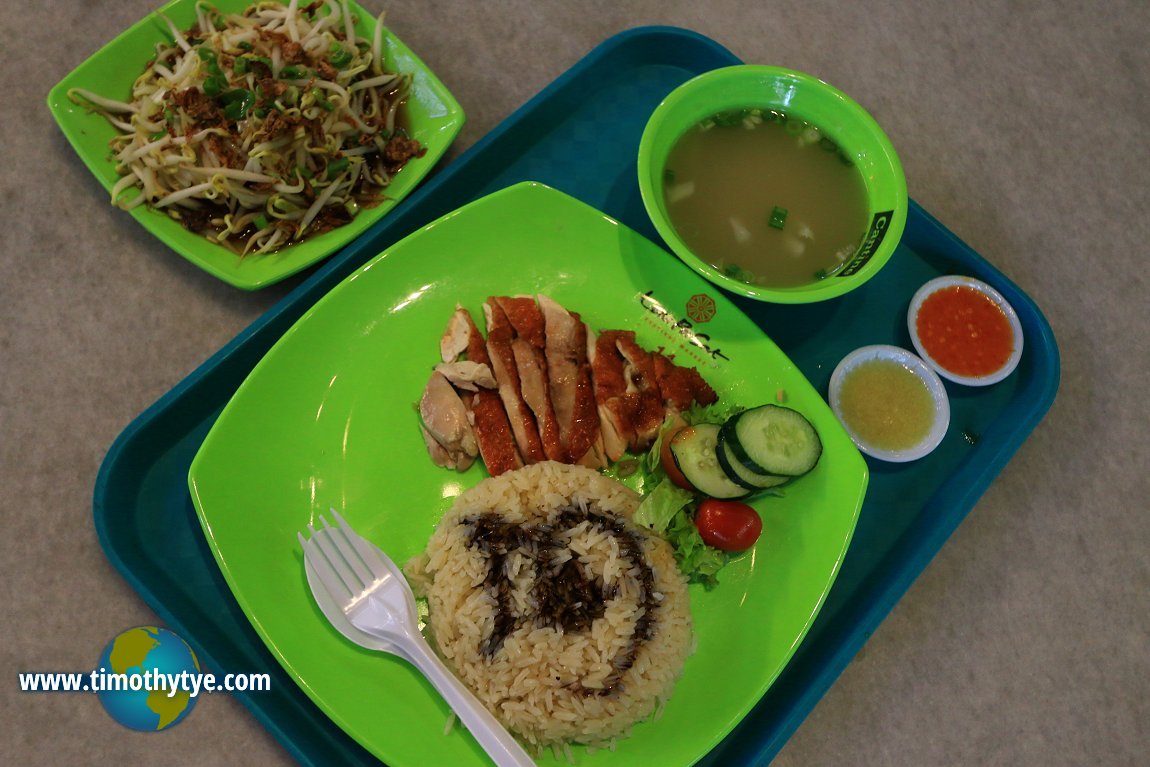 My chicken rice breakfast. (27 July 2017)
My chicken rice breakfast. (27 July 2017)
List of the Historic Buildings in Singapore; Discover Singapore
 Copyright © 2003-2025 Timothy Tye. All Rights Reserved.
Copyright © 2003-2025 Timothy Tye. All Rights Reserved.
Copyright © 2003-2025 Timothy Tye. All Rights Reserved.

 Go Back
Go Back